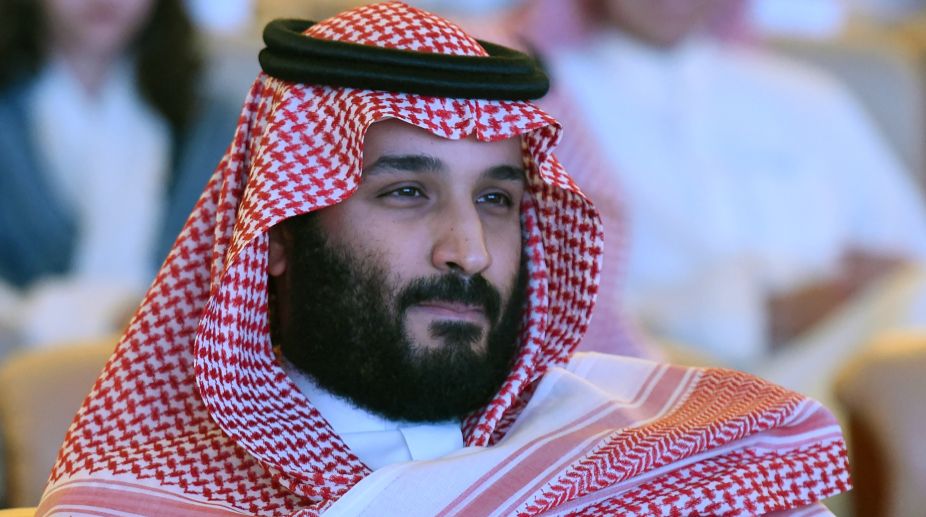AAP completely lost touch with people, claims Sachdeva
He alleged that not just Delhi, the people of Punjab are distressed by the development stagnation and rapid corruption under the AAP’s rule.

Prince Mohammed bin Salman (Photo: AFP)
Is the desert kingdom in quicksand? The weekend shake-up in the Saudi Arabian palace is as bold as it is unprecedented. The geostrategic import of the dramatic development is profound, and the immediate signal that has been emitted is that the young Crown Prince Mohammed bin Salman is ever so determined to consolidate his power in the richest swathe of the world.
In what has been packaged to the comity of nations as a “corruption purge”, he has arrested eleven senior princes, pre-eminently the outspoken billionaire, Prince al-Waleed bin Talal.
The purge has shaken the palace in Riyadh to its foundations and has trashed the general perception that senior members of the royalty are immune. Comment on the impact of the shake-up within Saudi Arabia and on its dealings with the world must await further developments. Suffice it to register that Prince Mohammed’s anti-corruption drive has targeted some of the kingdom’s richest and most powerful men. Arguably, the sudden offensive that was ordered by a royal decree from King Salman in a way mirrors the strife within royalty.
Advertisement
It has calculatedly targeted figures hitherto deemed as “untouchables”. The palace is no stranger to purges and sidelining of princes; yet in terms of scale and severity, Saturday’s late-night strike by the Crown Prince outdoes previous purges in Riyadh. There are several facets to the reshuffle. One is that the Crown Prince is determined to rein in the “patronage networks” that influence business deals and enable prominent families to secure substantial cuts from lucrative contracts.
The other is to tackle dissent and political rivals. The Crown Prince, an ambitious heir to the throne, has made it pretty obvious that he is determined to stamp his authority over most aspects of public life. Yet another compulsion is to strengthen Prince Mohammed’s control of the kingdom’s security institutions, which had long been headed by powerful branches of the ruling family. Six months into his tenure, Prince Mohammed has introduced a series of reforms designed to transform the kingdom’s economy and put the relationship between the state and its citizens on a new course.
The new economic policy, labelled as Vision 2030, aims to revolutionise most aspects of Saudi life within a time-frame of 12 years. As the country gets wafted along with the liberal breeze, women have recently been allowed to drive and even enter theatres and cinemas. By next year, women are expected to enter sports stadia and travel abroad without the endorsement of their male guardians.
The second concession is of profound importance in a theocratic land. In a word, women will at last be accorded the status that they deserve. Human rights for prisoners must now be uppermost on the agenda of Crown Prince Mohammad, who is plainly gearing up to ascend the throne as the King of Saudi Arabia.
Advertisement